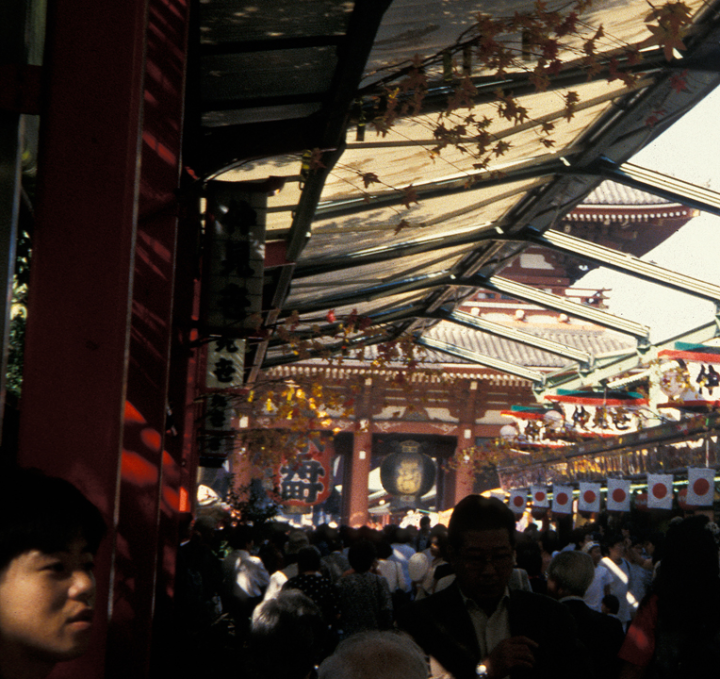
I just posted some old snaps of Japan’s #1 tourist attraction, and while I was digging through the pix ran across these, of Asakusa, a Tokyo shopping district whose name written phonetically in English would be “Asaxa.” Japanese words transcribed into English contain many instances of the letter “u” which are not pronounced even though Japanese will insist furiously that they are there (a consequence, I think, of using syllabics for phonetic readings). Asakusa is really nice, a good place to shop, eat, and drink, and if you’ve ever seen anyone’s tourist snaps of Tokyo, you’ve probably seen it; but perhaps not these. [Updated: A note on Japanese pronunciation.]
Above is one of the shopping arcades on a busy afternoon. Below, a pachinko parlor. I am not going to launch into an excursus on pachinko culture, not least because my nervous system would melt down in about thirty seconds were I ever so foolish as to enter one, but it’s pretty damn weird. You can enlarge the picture, but it still won’t make any sense.
I think these date from 1994.
Japanese Vowels · Antone Roundy writes:
It is sort of there actually, because you have to form the vowel in your mouth or it won’t sound right--you just don’t move your vocal cords. In Japanese, “i” and “u” are unvoiced when they occur between unvoiced consonants (like “k” and “s”). So if the word had been “Asakisa” instead of “Asakusa”, it would sound subtly different because you’d form the “i” in your mouth, but not voice it. Still, a person reading “Asaxa” English style would have their mouth shaped about right for the unvoiced “u”, so it doesn’t matter that much.